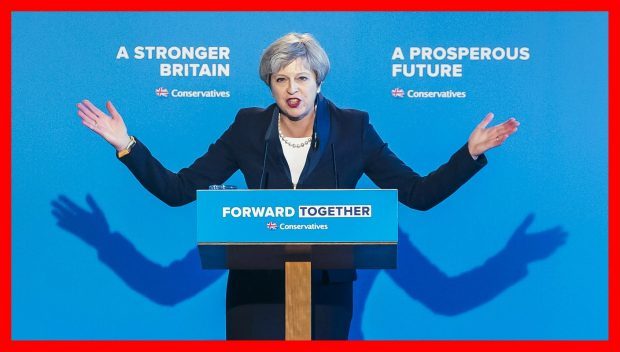Theresa May was accused of a “power grab” last night as she abandoned key manifesto commitments in a “threadbare” Queen’s Speech which was focused largely on Brexit.
Eight of its 27 bills are dedicated to the process of leaving the European Union, including separate legislation on fisheries and agriculture, which the SNP seized upon as evidence of the UK Government’s desire to centralise control.
There are also plans for a repeal bill to convert EU law into UK law, a customs bill to ensure a “standalone UK regime” and a trade bill to create a framework allowing the UK to operate an independent trade policy.
Additionally, an immigration bill will allow for the repeal of free movement of people.
The prime minister came under immediate fire from the SNP after the speech – the first by a minority government for almost 40 years – failed to make clear where responsibility will lie for repatriated powers in devolved areas, like agriculture and fishing.
Ian Blackford said this amounted to a “power grab in action”, insisting his MPs would not simply “sit back” and watch it happen.
She is also under pressure, having so far failed to secure a deal with the Democratic Unionist Party (DUP) after losing the Conservatives’ majority at the ballot box earlier this month.
If an agreement is not reached by the time of the vote on the government’s legislative agenda next week, opposition parties could unite against it in the Commons.
That in turn could lead to Jeremy Corbyn having the chance to form an alternative government or another election.
The Labour leader, buoyed by a result that exceeded expectations, came out fighting yesterday.
He dismissed the programme as “thin gruel”, referred to his party as “a government in waiting”, and added: “This is a threadbare programme from a government that’s lost its majority and apparently run out of ideas altogether.
“This would be a thin legislative programme even if it was for one year.”
Unusually, this Queen’s Speech sets out the government’s programme for the next two years to cover the Brexit timetable.
Mrs May stated she would seek to govern with “humility and resolve”, before adding: “We will do what is in the national interest and we will work with anyone in any party that is prepared to do the same.”
The Tory leader said the government would “see Brexit through”, but pledged to “seek to build a wide consensus”.
This apparent softening of approach underlines her weakened position, as does the conspicuous absence of key flagship policies proposed during the campaign, including controversial reforms of social care in England, although a consultation will still go ahead.
Plans for new grammar schools south of the border – a cause close to Mrs May’s heart – are also notably absent as is a commitment to a free vote on whether to repeal the ban on hunting with dogs and the intended watering-down of the pensions triple lock.
Meanwhile, US President Donald Trump’s visit is not mentioned, but Downing Street later confirmed the invitation still stands.
In terms of non-Brexit-related measures, the speech outlines a space industry bill to create new powers to license a range of commercial space flights.
There will be a review of the counter-terrorism strategy, with a commission for countering extremism established.
Following the devastating fire at Grenfell Tower in London, an independent public advocate for all public disasters will be formed.
The prime minister apologised for failures by local and national government in responding to the tragedy.
